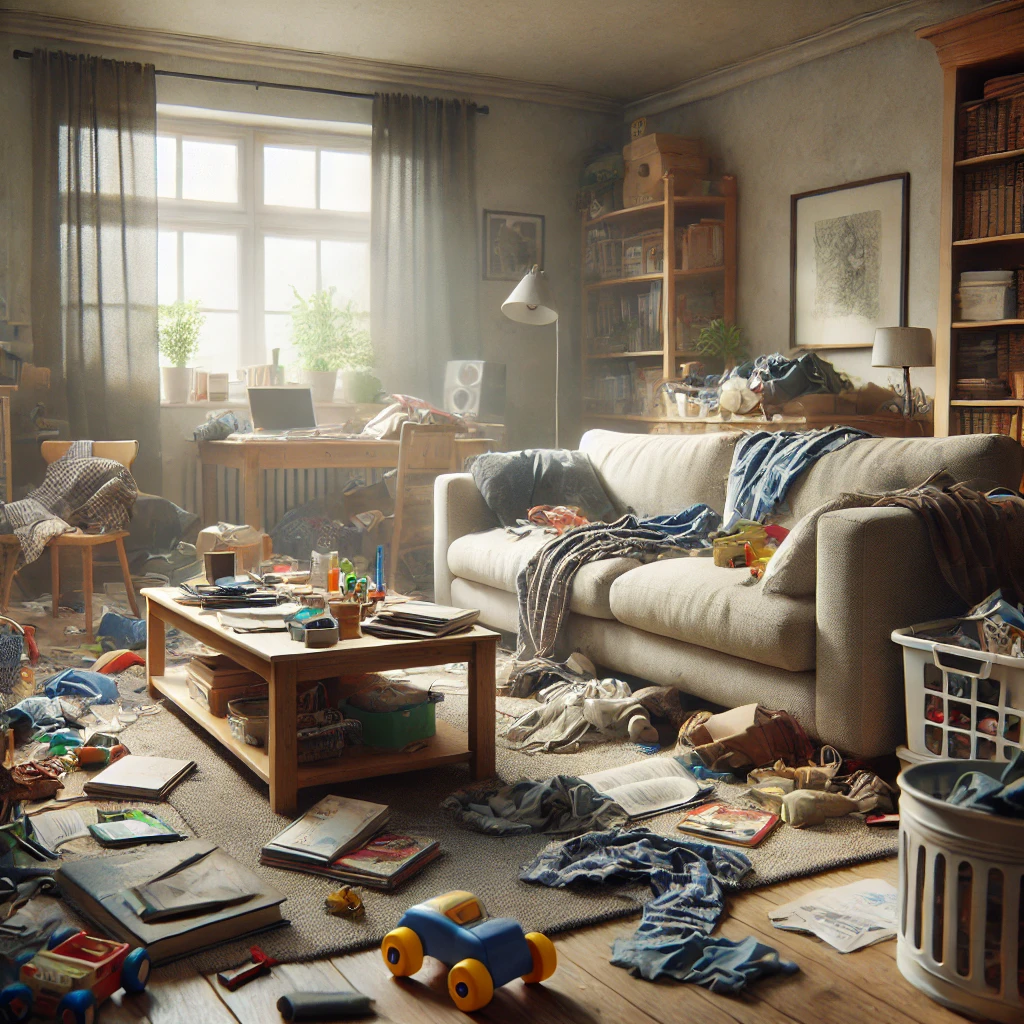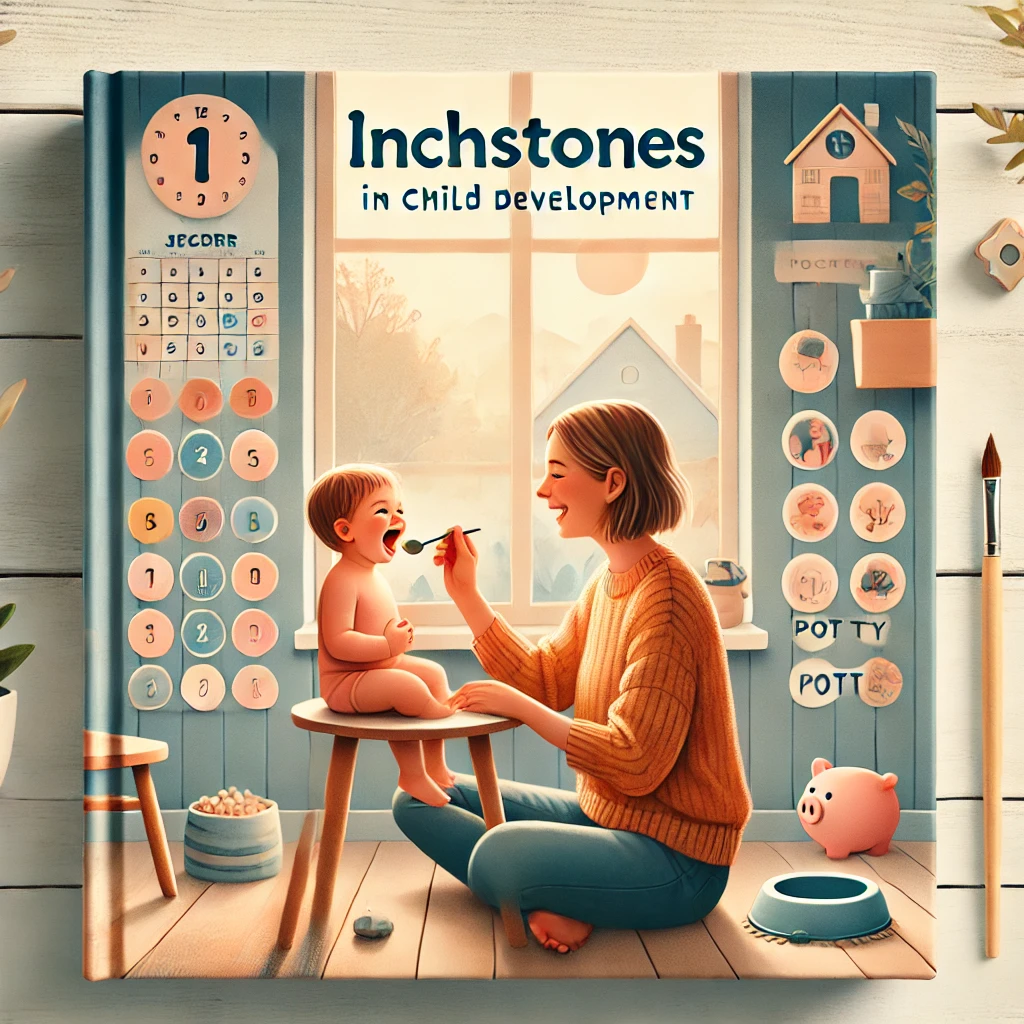
As parents, we’re often so caught up in the daily whirlwind of activities—juggling work, school runs, meal preparation, and endless to-do lists—that it’s easy to overlook certain aspects of our home environment. One such aspect is clutter. While it may seem harmless at first, clutter can subtly accumulate until it becomes part of the background, leading to a phenomenon known as clutter blindness. This term refers to the tendency to overlook messes because we’ve become accustomed to seeing them. Clutter blindness can affect everyone, but it can have a particular impact on families, influencing everything from the atmosphere in the home to children’s behavior and overall well-being. This article aims to shed light on clutter blindness, its effects, and how to tackle it effectively to create a more organized, peaceful home environment.
Understanding Clutter Blindness
Clutter blindness is a concept many parents may not even realize they’re experiencing. It’s a gradual process where messes and disorganization blend into the background of our lives, becoming almost invisible. The term itself might sound like a medical condition, but it’s really a psychological response to our environment. Our brains, designed to conserve energy, filter out what we perceive as non-threatening or non-essential stimuli. In the case of a cluttered home, this means that the piles of toys, stacks of papers, or clothing strewn about can become so familiar that we no longer see them.
Imagine walking into your living room. On the surface, everything seems in order. But then you start to look—there’s a pile of mail on the coffee table, a stack of books on the floor, and a random assortment of toys scattered about. Over time, these items may have become part of the room’s “normal” state, and you’ve subconsciously stopped noticing them. This is clutter blindness in action.
This condition is not just a minor inconvenience; it can have more profound implications for your mental and emotional well-being. A cluttered environment has been linked to increased stress, difficulty focusing, and a general sense of being overwhelmed. An untidy home can make it harder for children to concentrate on homework, play freely, or even sleep soundly. Therefore, recognizing and addressing clutter blindness is crucial for maintaining a healthy and harmonious home.
The Impact of Clutter on Family Life
Clutter affects not only your home’s appearance but can also impact how you and your family feel. Numerous studies have shown that living in a cluttered environment can lead to elevated stress levels, particularly for parents who often bear the brunt of household management. Whether consciously or subconsciously registered, the sight of messes can trigger a stress response because it represents unfinished tasks. This can lead to a sense of unease and an inability to relax fully at home.
For children, the effects of clutter can be equally troubling. A cluttered environment can create a sense of chaos and disorder, which can be overwhelming for young minds. Children thrive in structured and predictable environments; too much clutter can disrupt this sense of order. This can manifest in various ways, from difficulty concentrating on homework to increased irritability and anxiety. Sometimes, clutter can even contribute to sleep problems, as a messy bedroom may prevent a child from winding down properly at the end of the day.
Additionally, clutter can interfere with family relationships. A home filled with clutter can create tension between family members, particularly if there are disagreements about cleaning and organization. This can lead to frustration, resentment, and even arguments, which can strain family dynamics.
Signs You’re Suffering from Clutter Blindness
Recognizing clutter blindness is the first step toward overcoming it. Here are some signs that you might be experiencing this condition:
- You Stop Noticing the Mess: One of the most obvious signs of clutter blindness is that you no longer see the mess around you. Items that are out of place, like toys on the floor or dishes on the counter, no longer catch your eye because you’ve become so used to seeing them.
- You Feel Overwhelmed at Home: If you often feel stressed, anxious, or overwhelmed at home, clutter might be to blame. Even if you’re not consciously aware of the mess, your brain is still processing it, leading to feelings of unease.
- You Struggle to Find Things: Clutter makes keeping track of your belongings difficult. If you frequently misplace items or spend a lot of time searching for things, this could be a sign that your home is more cluttered than you realize.
- You Avoid Certain Areas of Your Home: If you avoid certain areas because they’re too messy, this indicates clutter blindness. Instead of addressing the mess, you may subconsciously ignore it by avoiding those areas altogether.
- Your Family Members Complain About the Mess: Sometimes, other people notice clutter before you do. If your spouse or children frequently complain about the state of the home, it’s worth taking their concerns seriously. They may be seeing the clutter that you’ve become blind to.
A helpful exercise is to take a few moments to walk through your home with a fresh perspective. Pretend you’re seeing it for the first time. Alternatively, please take photos of different rooms in your house and review them later. Seeing your home through the lens of a camera can sometimes make clutter more apparent, allowing you to identify problem areas you may have overlooked.
How to Overcome Clutter Blindness
Once you recognize that clutter blindness affects you, it’s time to take action. Here are some practical steps to help you address and eliminate clutter from your home:
- Start Small: It’s easy to feel overwhelmed by the prospect of decluttering your entire home, especially if the clutter has accumulated over a long period. The key is to start small. Pick one room or even just one area to focus on. For example, you could start with a single drawer, a bookshelf, or a section of your kitchen counter. Set a timer for 15-30 minutes and work on decluttering that space. Small, manageable tasks make the process less daunting and help build momentum. For more tips on how to get started, you can check out Apartment Therapy – Decluttering Tips.
- Involve the Whole Family: Decluttering doesn’t have to be a solo endeavor. Involve your family members to make it more manageable and teach children the importance of maintaining an organized space. Assign specific tasks to each family member based on their age and abilities. For instance, younger children can be responsible for picking up toys, while older children can help sort through clothing or organize bookshelves. Making decluttering a family activity can also create a sense of shared responsibility and teamwork.
- Declutter Regularly: One of the best ways to prevent clutter blindness from returning is to make decluttering a regular habit. Set aside time each week to tidy up and put things in their proper place. Consider designating a specific day, such as Saturday morning, for a quick declutter session. Regular maintenance prevents clutter from building up and becoming overwhelming.
- Use Storage Solutions: Effective storage is essential for keeping clutter at bay. Invest in storage solutions that suit your needs and the layout of your home. For example, use baskets or bins for toys, hooks for bags and coats, and drawer organizers for small items. Labeling storage containers can also make it easier for everyone in the family to find and put away items. The goal is to create a home where everything has its place, making it easier to maintain order.
- Adopt a “One In, One Out” Rule: To prevent clutter from accumulating, adopt a “one in, one out” rule. This means that for every new item you bring into your home, you get rid of an old one. This rule can be applied to everything from clothing and toys to kitchen gadgets and books. It encourages mindful purchasing and helps control the amount of stuff in your home.
- Declutter Sentimental Items with Care: Sentimental items can be some of the hardest to declutter because they often hold emotional value. However, it’s important to remember that keeping too many sentimental items can contribute to clutter. Consider keeping only a few meaningful items and finding creative ways to preserve the memories associated with them, such as taking photos or creating a scrapbook. You can also repurpose sentimental items into something functional, like turning an old quilt into a pillow or framing a child’s artwork.
- Embrace Minimalism: While minimalism isn’t for everyone, adopting some minimalist principles can help reduce clutter and prevent it from returning. Focus on keeping only the items that serve a purpose or bring you joy. Decluttering your home isn’t just about getting rid of things; it’s about creating a space that supports your family’s needs and values. By embracing a more minimalist mindset, you can make a home that feels more open, peaceful, and conducive to quality family time.
Maintaining a Clutter-Free Home
After you’ve tackled clutter blindness and decluttered your home, the next step is maintaining that clutter-free environment. This requires ongoing effort, but it’s well worth it for the peace of mind and improved quality of life. Here are some strategies to help you maintain a clutter-free home:
- Set a Daily Tidy-Up Routine: Incorporating a daily tidy-up routine into your schedule can help prevent clutter from accumulating. This doesn’t have to be a long or involved process—spending 10-15 minutes daily tidying up can make a big difference. Please encourage your children to tidy up their spaces daily, whether by putting away toys before bed or ensuring their homework is organized.
- Practice Mindful Consumption: One of the best ways to prevent clutter is to be mindful of what you bring into your home. Before purchasing, ask yourself if you need the item and where it will go. Avoid impulse buying, and take the time to consider whether an item will genuinely add value to your life. By being selective about what you bring into your home, you can reduce the risk of clutter accumulating again.
- Regularly Purge Unnecessary Items: Make it a habit to regularly go through your belongings and purge items you no longer need or use. This could be done seasonally or whenever you notice that certain areas of your home are becoming cluttered. Regular purging helps keep your home organized and ensures you’re surrounded only by items that serve a purpose or bring you joy.
- Create Designated Spaces for Everyday Items: To prevent everyday clutter from building up, create designated spaces for the items you use most frequently. For example, have a specific spot for keys, mail, and school bags so these items aren’t scattered around the house. By giving everything a designated spot, you can reduce the likelihood of clutter accumulating in the first place.
- Stay Consistent: Consistency is vital to maintaining a clutter-free home. Make decluttering and tidying up a routine, and encourage your family to do the same. Establishing these habits might take some time, but with persistence, maintaining a clutter-free home will become second nature.
Clutter blindness is a common challenge many families face, but it’s not insurmountable. By understanding what clutter blindness is and how it affects your home and family, you can take steps to overcome it and create a more organized, peaceful living environment. The process may require time and effort, but the benefits—reduced stress, improved focus, and a more harmonious home—are well worth it. Remember, the goal isn’t to achieve perfection but to create a space that supports your family’s well-being and allows you to enjoy your time together. Take action today to address clutter blindness and experience a clutter-free home’s positive impact on your family’s life.










